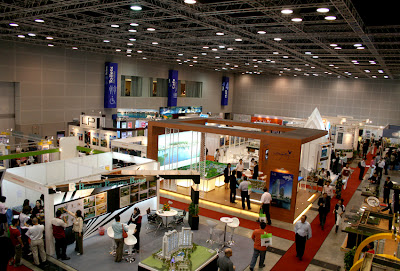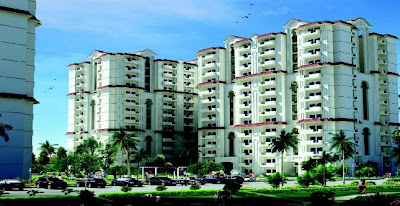Commercial real estate development has
played a pivotal role in shaping Mumbai’s lodging markets, according to
Jones Lang LaSalle. “Mumbai leads all metropolitan cities in India with a
total Grade A office stock of 7.9 million square meters as of December
31, 2012. The city has witnessed a Compounded Annual Growth Rate (CAGR)
of 21.7% over the last five years in terms of incremental office stock,”
says Sudeep Jain, Executive VP – Jones Lang LaSalle Hotels (India).
Meetings, incentives, conventions and exhibitions (MICE) demand is typically generated from a number of large conventions organised in Mumbai in the form of smaller meetings and conferences held by local companies. Some of the major events to be organised in Mumbai during 2013 include ChemPetro World Expo, Pharma World Expo, Plastivision India and India Steel Event. Additionally, Mumbai’s importance as the financial capital of the country results in a large number of events, related to financial, economic affairs and trade, being organised in the city.
Due to the city’s predominantly
commercial profile, the leisure segment contributes a relatively smaller
percentage of room demand. For foreign tourists, Mumbai serves mainly
as an entry
point into India for connectivity to
other destinations in Maharashtra and other parts of India. Demand from
the leisure segment is mostly concentrated around the South Mumbai area.
Based on JLL research, Mumbai has 45
operational hotels, with an inventory of 10,537 rooms spread across six
categories. Prominent operators with a presence in Mumbai include Hyatt,
Marriott, IHG, Starwood, Four Seasons, East India Hotels (Oberoi &
Trident) and Indian Hotels Company Ltd. (Taj).
Luxury and upper upscale hotels dominate
the total supply with 69% contribution to the overall inventory. The
upscale segment contributes 14% followed by the midscale segment with an
8% contribution. Domestic and internationally branded economy and
budget hotels in Mumbai currently represent 5% of the total supply.
Serviced apartments in Mumbai are presently offered by four properties
in the branded segment, namely Marriott, Oakwood, Grand Hyatt and Taj,
collectively contributing 4% of the total inventory.
There are 13 hotels currently under
construction in Mumbai across different categories with a total
inventory of 3,394 rooms. Once operational, the total room inventory of
Mumbai will go up by almost 32% from the existing supply. Some of the
prominent international operators like Jumeirah and MGM have also
announced their plans to enter Mumbai’s hospitality space in the coming
future.
MIAL boosts the demand
MIAL, a joint venture between GVK led
consortium and Airports Authority of India was awarded a mandate to
modernise and upgrade Mumbai’s CSIA. Apart from the expansion of
existing airport and development of a new terminal, MIAL will also
auction land parcels on lease for commercial and hotel development. The
auction process is expected to start during the second half of 2013.
This move is expected to further augment the hotel supply in the city.
Lodging Market Performance
Over the three year period from 2009-10 through to 2011-12, Mumbai witnessed a marginal increase of 4% in Revenue per Available Room (RevPAR) as a result of a 1% increase in occupancy levels accompanied by a 2% growth in Average Daily Rate (ADR).
FY 2010-11 saw an increase of about 2.5%
in occupancy and 5% in ADR after witnessing a steep decline from
2007-08 to 2009-10 due to global economic turmoil and the terrorist
attacks at two prominent hotels in Mumbai. In 2010-11 occupancy levels
averaged at 63% and ADR at around INR 9,500. Hotels in South Mumbai have
been the worst affected in terms of performance post terrorist strikes
at Trident and Taj Mahal Hotels followed by a bomb blast at Zaveri
Bazaar in 2011.
Furthermore, the corporate movement from
traditional CBD to Central and North Mumbai, due to availability of
office stock at cheaper rentals, has also affected hotels in South
Mumbai adversely.
Trading performance has seen a drop of
2% in RevPAR during the last 11 months, in comparison to 2011-12, in the
light of a decline of 8% in ADR to INR 8,450. Occupancy on the other
hand strengthened to 64% during YTD 2012-13 from 60% in the previous
year.


